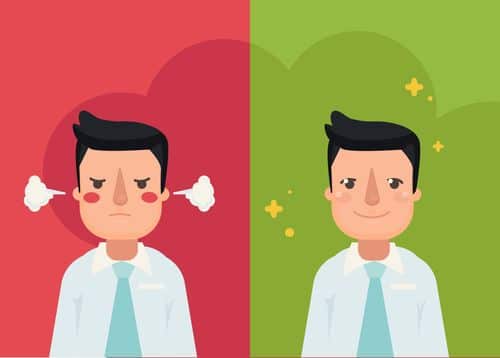All You Need to Know About Psychotherapy
Introduction
At some point, we all experience mood swings, anxiety, stress, hopelessness, fear, and other types of emotions. It could be because of financial issues, personal loss, relationship issues, performance pressure, illness, family issues or many other reasons. Many a time, we tend to overcome these issues by ourselves and bounce back in action. However, sometimes one may need a little help to cope.
When you find it harder to snap out of negative emotion or notice signs of lagging mental distress, it’s a great idea to talk to a mental health professional. Taking psychotherapy sessions from an expert can help you identify emotional issues that have made you feel isolated and aloof. This is hard for both you and the people that care for you. Psychotherapists can help you bridge this gap with evidence-based tools and techniques.
Table of contents
What is Psychotherapy?
How is Psychotherapy Useful and What are its Benefits?
When does a Person Require Psychotherapy?
Summary
Frequently Asked Questions (FAQs)
What is Psychotherapy?

Psychotherapyis a way of helping people with a broad variety of mental illnesses and emotional difficulties/ process of treating any mental or emotional distress using psychological techniques. Otherwise known as “talk therapy” or “counselling”, psychotherapyaims to help people understand and acknowledge their feelings, and prepare them to deal with it by inducing evidence-based approaches.
Psychotherapymay last for about a few sessions or may go on for several months and years. The number of sessions one needs may vary from one individual to another. Also, therapy sessions may be conducted with an individual, group, family, or couple and can help both children and adults alike.
This therapy helps people solve problems, manage work-life balance, overcome emotional difficulties, achieve goals, and treat different types of mental health issues.
Following are just some of the conditions where psychotherapymay help:
- Depression
- Stress
- Anxiety
- Mood swings
- OCD
- ADHD
- Eating disorder
- Personality disorder
- Panic
- Abuse
- Trauma
- Schizophrenia
- Bipolar disorder
- Phobia
- Substance abuse
- Addiction
People performing psychotherapyare called psychotherapists. These practitioners have the expertise and extensive knowledge in the field of psychology. However, the necessity to have a license, degree and certification may vary from country to country.
Professional psychotherapists that could help you include the following:
- Psychiatrist
- Psychoanalyst
- Psychologist
- Psychiatric nurse practitioner
- Clinical social worker
- Clinical Psychologist
- Professional counselor
- Mental health expert
- Marriage therapist
- Family therapist
There are different therapies a psychotherapist may use to help a patient. Different therapists have different strategies. Also, the techniques may vary based on the therapist’s expertise and the severity of the emotional issue that the patient may be going through.
Some of the common methods used are divided into five types:
#1 Psychodynamic Therapy
This therapy mostly focuses on the patient’s past problematic events that are influencing the current issues.
#2 Cognitive-Behavioral Therapy (CBT)

CBT technique mostly focuses on changing a patient’s thought process that might cause negative feelings.
#3 Eclectic Therapy
This therapy is a tailor-made treatment that uses a range of methods to create a personalised approach for the patient.
#4 Integrative Therapy
Integrative therapy aims to facilitate the feeling of wholeness by combining different therapies.
#5 Humanistic Therapy
Humanistic therapy works towards improving the positive traits, good nature, and self-awareness in the patient.
How is Psychotherapy Useful and What are its Benefits?
In the past, people hesitated to talk about mental health issues, but today, more people are coming forward to seek professional help. That is simply because psychotherapyis useful for bringing positive changes in peoples’ lives. Also, people realise that a sound mind is primary for a sound body. The stigma attached to mental health has started to diminish.
In a psychotherapysession, people are encouraged to talk about their thoughts and feelings that are troubling them. Talking about difficult life events is important because harbouring negative feelings might get worse over time. So, when you feel overwhelmed with prolonged emotions, it’s best to get it checked with a trained psychotherapist. The sooner one reaches out to a professional therapist, the better will they be able to help in leading a happier, healthier life. Though we may have many people that care for us, only a trained professional can help us tend to unattended wounds that need supervised healing.
Therapy is indeed a useful tool to deal with an array of issues ranging from anxiety to trauma and interpersonal problems.
Here are 10 benefits of taking psychotherapysessions:
#1 Feel Motivated

Lack of interest in doing everyday activities and constantly feeling sad are the most common signs of depression. The therapist helps people build new and interesting ways to try and stay motivated.
#2 Overcome Destructive Behaviour
Therapists identify triggers that can lead to harmful behaviours and negative thought patterns. They create treatment plans/strategies that can help people control response to such triggers.
#3 Manage Stress and Anger

Stress and anger are significant contributors to health-related issues such as high blood pressure and heart attacks. Psychotherapists suggest certain techniques to deal with stress, anger, anxiety, mood swing and more.
#4 Build Self-Confidence and Self-Reliance

Psychotherapyhelps to develop self-confidence and problem-solving skills and be more self-reliant. Such qualities can be great for managing mental health issues for a long time.
#5 Reduce Medication
People dealing with mental health issues are sometimes put on antidepressants and other medication. Regular therapy sessions may reduce the use of medication.
#6 Improve Spiritual Well-Being
Therapists try to imbibe techniques such as breathing exercises, meditation, and yoga that ultimately improve the spiritual well-being of a patient. They are also encouraged to travel, get enough sunlight, and eat healthy food for better results.
#7 Overcome OCD
Obsessive-Compulsive Disorder is a mental health condition that pushes a person into a spiral of unwanted thoughts or to do something over and over again. A therapist will help with bringing in custom-made alternative methods to deal with such compulsion.
#8 Manage Work-Life Balance

Work-life balance is increasingly becoming difficult for people to manage. A psychotherapist helps the patient become open to communication and work better together with people. This helps reduce chronic stress and frustration.
#9 Lead a Healthy Lifestyle
Psychotherapyis said to improve signs of depression, phobia, bipolar disorder, panic, anxiety, and other mental health issues. A good therapist aims to help people have a wholesome and healthy lifestyle even after the treatment.
#10 Develop Self Care

Psychotherapyhelps people understand that physical health and mental health are equally important. By unloading all the heavy feelings, the patient may feel liberated and cathartic and try to develop self-care in the future.
When does a Person Require Psychotherapy?
There is a constant misconception across the world that only people with severe mental health issues need to visit a psychotherapist. This stigma is often a reason why people don’t seek help, and a mental health condition gets worse. There are several reasons why one may need to take psychotherapysessions.
Following are some signs that a person may need psychotherapy:
- Unexpected/prolonged mood swings
- Undergoing a big change in life
- Overwhelming feelings of sadness
- Prolonged feelings of helplessness and hopelessness
- Disturbing and self-harm thoughts
- Nothing brings happiness and joy/feeling of sudden displeasure in hobbies
- Difficulty in focusing on work or studies
- Feeling isolated or alone
- Dealing with addiction
- Constantly stressed and anxious
- Facing lots of abusive situations
- Work-life balance getting difficult
- Difficulty with sleep and diet
- Feelings of losing control over life
Summary
All of us deserve support, and there is nothing wrong in seeking professional help for mental well being. You don’t need to wait until the situation deteriorates to get support. Also, never underestimate your feelings because the signs of mental or emotional distress may not always be obvious. So, seek help and remember that you are not alone in this.
Frequently Asked Questions (FAQs)
Q. Who needs psychotherapy?
A. Anyone dealing with a huge transition in life and also face mental health issues such as depression, schizophrenia, anxiety, stress, mood swings, social withdrawal, bipolar disorder, insomnia, and other conditions may need psychotherapy.Q. What does a psychotherapist do?
A. The job of a psychotherapist is to help you fix yourself. Psychotherapists discover patterns and methods that empower the patient to deal with life situations. It is all done through multiple conversations, scientific treatment plans and counselling techniques.Q. Is psychotherapy effective for a mental health condition?
A. Yes, many studies and researches have found psychotherapyto be effective in improving signs of mental health conditions. However, it takes time to get results, so one needs to be tolerant of the therapy.Q. For how long does one have to continue psychotherapy?
A. Psychotherapyis not a time-bound process. People with smaller goals can expect great results in a shorter time, while a serious mental health issue might take time to show the result. So, make sure you set a sensible and realistic goal when visiting a psychotherapist.Q. How much does a psychotherapy session cost?
A. The average cost of psychotherapyin India may range from Rs. 500 to Rs. 3000 per session. Also, there are many NGOs that take psychotherapysessions for free or as little as Rs. 10 per session.Q. What are the types of psychotherapies?
A. Psychodynamic therapies, Cognitive behavioral therapies (CBT), Eclectic therapies, Humanistic therapies, Dialectic behavioral therapies, and other types of therapies that involve talking and counselling.Q. How to select a psychotherapist?
A. When selecting a psychotherapist, you should consider your needs. Your primary physician, friend, or a family member may suggest a good therapist for you. Make sure you read reviews online and check their expertise before selecting a psychotherapist.







